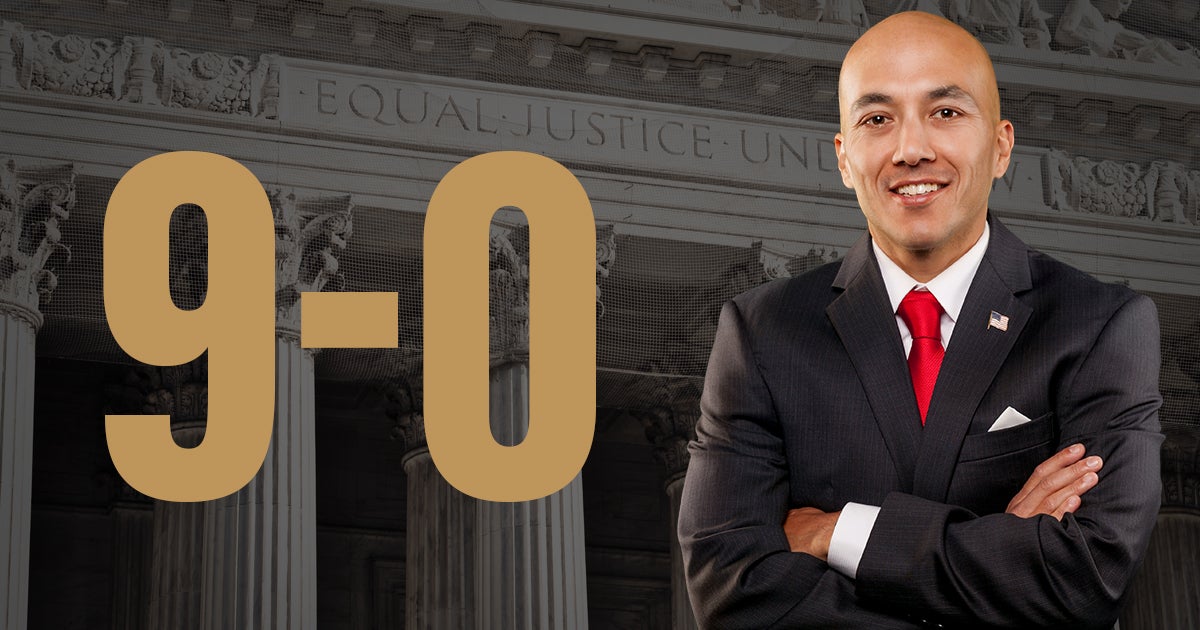
by Mike Berry • 4 min read
It is nearly inevitable that each term the U.S. Supreme Court will decide a “blockbuster” case. For months, advocates, wonks, and pundits all wait for the court to issue at least one ground-breaking decision in a high-profile case.
Many predicted Fulton v. City of Philadelphia—which asked whether the government can discriminate against faith-based social services providers in the name of anti-discrimination—would be just such a case. And while some were left disappointed with Fulton’s limited impact, there is cause for optimism.
In Fulton, the court held that Philadelphia cannot discriminate against faith-based social services providers because doing so violates the Free Exercise Clause of the First Amendment, even when Philadelphia’s given reason for its conduct was to enforce its non-discrimination law.
What had Supreme Court watchers so excited, however, was whether the court would use Fulton as an opportunity to overrule three decades of bad religious liberty case law. In 1990, the Court issued its infamous Employment Division v. Smith decision, which held that as long as a law applied to everyone equally and didn’t target religion for less favorable treatment, the government only needed to show a rational basis for the law.
Smith’s effect was that governmental bodies could restrict religious liberty so long as they disguised their religious hostility with a “neutral law of general applicability.” As a result, religious liberty advocates have been calling for Smith to be overturned nearly ever since.
Philadelphia had a Smith-like law that prohibited discrimination by anyone who wanted to contract with the city. Naturally, religious liberty advocates saw Fulton as a vehicle to overrule Smith. But when the time came to finally banish Smith to the history books, the court sidestepped the issue. Although the court agreed that Philadelphia was in the wrong, it fractured when it came to why.
Six of the Court’s nine justices simply avoided Smith altogether while ruling against Philadelphia. The remaining three justices agreed with the outcome but lamented that Smith would live to see another day.
Unanimous Support for Religious Liberty Signals Hope in Future Cases
Conservatives across the nation let out a collective groan upon reading the Fulton decision. Even if they were pleased with the outcome for the social services providers, many were sorely disappointed that no more than three justices believe Smith should be overruled.
But there is cause for optimism.
Upon deeper reflection on the Fulton decision and what it means in the grand scheme, one thing becomes immediately evident: religious liberty enjoys unanimous support at the Supreme Court.
Indeed, the universe of issues upon which Justice Thomas and Justice Sotomayor agree is probably quite small. Yet religious liberty occupies a distinct portion of that universe.
When it comes to the premise that government may not discriminate against an organization because of its religious beliefs, the nine Supreme Court justices are all in. And when it comes to seeking another opportunity to overrule Smith, there just might be an even better case to do so.
Right now, First Liberty continues our nearly six-year legal battle to vindicate Coach Joe Kennedy, who was fired from his job as a high school football coach because he prayed silently on the 50-yard line after games.
In Coach Kennedy’s case, the Supreme Court has already indicated that it is open to reviewing the Smith case and possibly provide a broader ruling to protect religious liberty for people of faith all across the country. And if First Liberty is successful, the result could mean that millions of Americans no longer have to choose between their jobs and their faith.